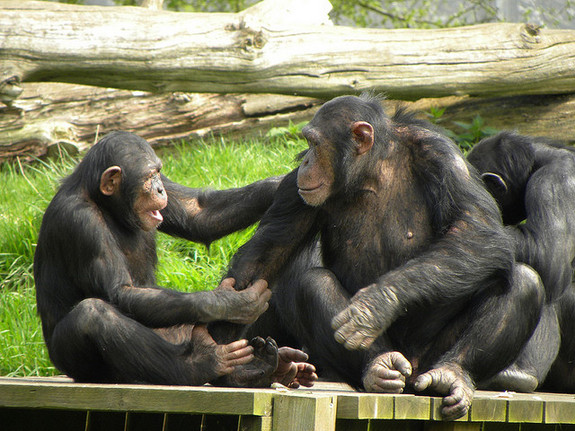Chimps Have Better Short-term Memory Than Humans

Boston — Chimpanzees may have more smarts than humans, at least regarding short-term memories, new research suggests.
A Japanese researcher presented a video showing the remarkable abilities of a chimpanzee named Ayumu, here at the annual meeting of the American Association for the Advancement of Science (AAAS) Thursday (Feb. 14). When the numbers 1 through 9 appeared randomly on a screen and then disappeared, the chimpanzee was able to recall the exact sequence and location of each number. Ayumu has also learnt numbers 1 through 19 and is able to touch each one in ascending order, which hasn't been shown before, Tetsuro Matsuzawa, a researcher at Kyoto University's Primate Research Institute, told Livescience.
As Matsuzawa showed the video to a room of scientists and journalists, murmurs of amazement were heard. "Don't worry, nobody can do it," Matsuzawa said, with an almost mischievous smile. "It's impossible for you."
A select few humans have such abilities, but these are typically people with savant syndrome, which is accompanied by severe mental disabilities; it's simply beyond the powers of an ordinary human, Matsuzawa said. On the other hand, six out of six chimpanzees tested could rapidly remember the location and order of nine digits, he said. [8 Amazing Non-Human Primate Abilities]
This incredible short-term (or "working") memory helps chimpanzees survive in the wild, where they often must make rapid and complex decisions. Working memory is an active form of short-term memory, a mental workspace that allows the brain to juggle multiple thoughts simultaneously.
For chimps, the amazing working memory likely helps the animals navigate the branches of huge trees to feed, for example, or decide what to do when competing groups of animals are threatening one another, he said.
Reach Douglas Main at dmain@techmedianetwork.com. Follow him on Twitter @Douglas_Main. Follow LiveScience on Twitter @livescience. We're also on Facebook & Google+.
Sign up for the Live Science daily newsletter now
Get the world’s most fascinating discoveries delivered straight to your inbox.










